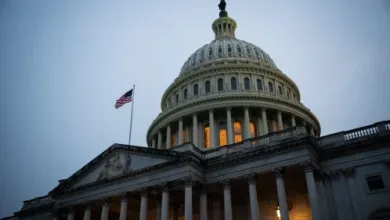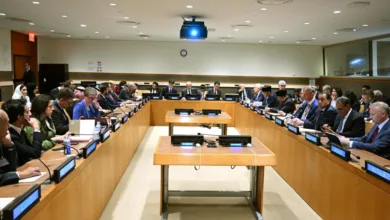Why Taiwan Remains the Most Dangerous Spark in Global Politics

Taiwan’s strategic location and unique political status make it a critical point of tension in global politics. In 2025, the island continues to be a focal point for U.S.-China rivalry, regional security concerns, and international diplomatic negotiations. Understanding Taiwan’s role is essential to anticipate potential conflicts, economic impacts, and strategic realignments. This article examines the historical context, contemporary challenges, and future scenarios for Taiwan’s role in global politics. (News)
Historical Context of Taiwan
Taiwan’s history has long been intertwined with global politics. Following World War II and the Chinese civil war, Taiwan emerged as the Republic of China, while the People’s Republic of China was established on the mainland. Since then, Taiwan has maintained a separate government and democratic institutions, even as China asserts claims over the island. This duality has made Taiwan a sensitive issue in international relations. (Breaking News)
The island’s economic growth, technological advances, and strategic alliances, particularly with the United States, have reinforced its international relevance. Taiwan’s semiconductor industry, critical for global technology supply chains, adds economic weight to its geopolitical significance. (U.S News)
U.S.-China Strategic Interests
The rivalry between the United States and China remains the defining factor in Taiwan’s geopolitical situation. The U.S. supports Taiwan through arms sales, military cooperation, and diplomatic backing, while China emphasizes reunification and often conducts military drills near the island. The balance of power and the potential for miscalculation make Taiwan a persistent flashpoint. (Trump News)
Taiwan’s position in global supply chains, particularly in semiconductors, amplifies its strategic importance. Disruption to Taiwan’s economy or security could have cascading effects worldwide, impacting technology, trade, and national security across multiple countries. (World)
Military Posturing and Regional Security
Military presence around Taiwan has escalated in recent years, with both the United States and China demonstrating capabilities through naval exercises, air patrols, and strategic deployments. Regional allies, such as Japan and South Korea, closely monitor the situation, emphasizing the island’s significance in broader security architecture. (News)
Taiwan itself maintains defensive strategies to deter potential aggression. Its military modernization programs, combined with asymmetric capabilities, are designed to make any invasion costly and strategically complicated for China. This military dimension is inseparable from Taiwan’s political and economic importance. (Breaking News)
Economic and Technological Stakes
Taiwan is a global leader in semiconductor manufacturing, producing a significant share of the world’s advanced chips. This technological dominance positions the island at the center of global economic interdependence. Disruption in Taiwan’s semiconductor production could impact industries from smartphones to automotive manufacturing worldwide. (U.S News)
Trade partnerships and supply chains involving Taiwan influence both regional and global economic stability. Countries dependent on these technologies must navigate diplomatic relations carefully to ensure continued access to critical components. (Trump News)
International Diplomacy and Alliances
Taiwan’s international status is complicated by diplomatic recognition. While only a few countries formally recognize Taiwan, many maintain unofficial relations, engage in trade, and provide security assurances. International diplomacy involves balancing engagement with Taiwan while managing relations with China, reflecting the delicate and strategic nature of Taiwan’s global role. (World)
Global institutions and regional alliances, including the United Nations, ASEAN, and security dialogues with the U.S., further complicate Taiwan’s position. Countries must navigate carefully to avoid escalation while safeguarding economic and strategic interests. (News)
Future Scenarios for Taiwan
Taiwan’s future is uncertain, with scenarios ranging from peaceful status quo to heightened confrontation. Key factors include U.S.-China relations, regional security dynamics, domestic political stability, and global economic dependencies. Diplomatic negotiations, military readiness, and technological resilience will determine whether Taiwan remains a stable region or becomes a trigger for wider conflict. (Breaking News)
The strategic importance of Taiwan ensures that its situation will continue to influence global policies, military strategies, and economic planning for years to come. (U.S News)
Taiwan remains one of the most sensitive and strategically important regions in global politics. Its historical context, economic influence, military significance, and centrality in U.S.-China rivalry make it a crucial consideration for policymakers, businesses, and international institutions. Ensuring stability in Taiwan is essential for regional security, global trade, and the avoidance of broader geopolitical conflict. (World)




